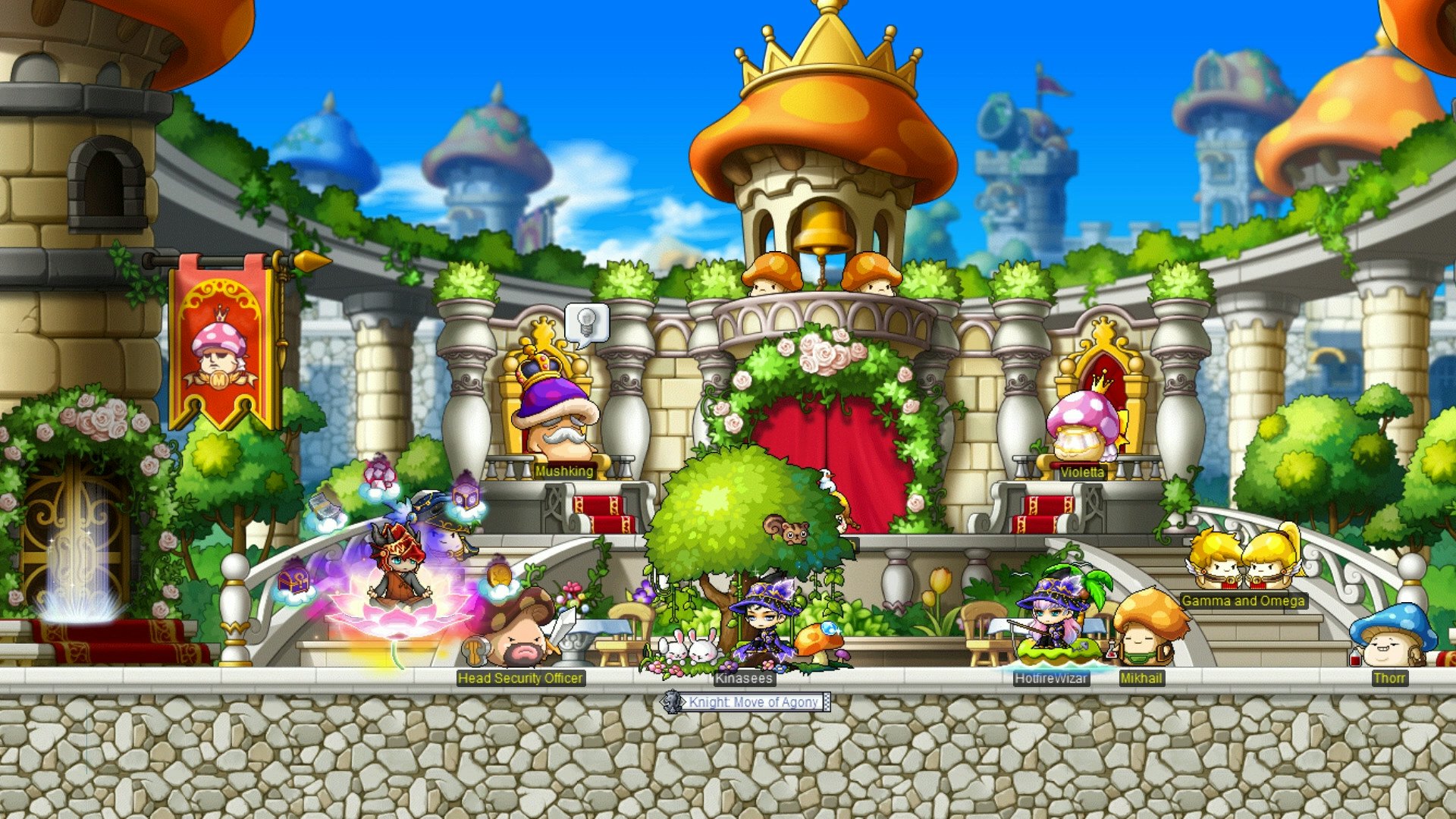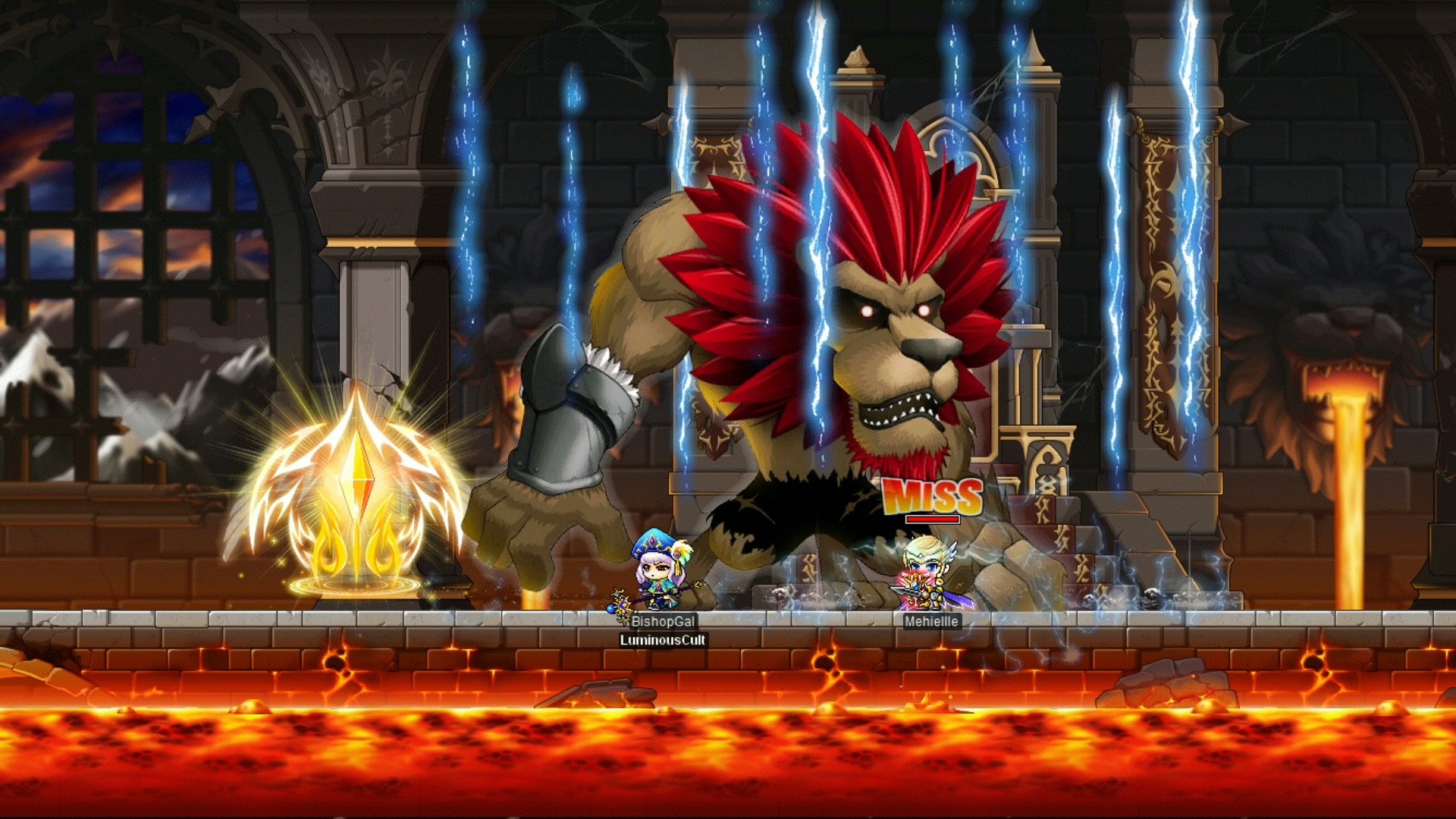
Gacha mechanics in games can feel like pouring money down the drain at the best of times, and some developers may be making things worse. Nexon Korea Corp., the publisher of MapleStory, was fined $8.9 million by the Korea Fair Trade Commission for misleading players about the chance to obtain in-game items, The Korea Economic Daily reports. That’s the highest fine ever levied by the KFTC for violating South Korea’s Act on Consumer Protection in Electronic Commerce.
Nexon did not immediately respond to Inverse’s request for comment.
To understand Nexon’s fine, you first have to understand Cubes. Essentially, Cubes are items that have a chance of increasing the rank of a piece of equipment, giving it better stats. Cubes come in many types, all with different chances of giving you a good outcome, making some far more desirable than others. One way to attain Cubes is to purchase them with real money, though the exact type of Cube you receive this way is determined randomly.

That’s where the fine comes in. The KFTC contends that, starting in September 2010, Nexon began altering the probability of receiving certain popular Cubes, even making some types impossible to obtain at times, without informing players of the changes. To make matters worse, Nexon then issued a statement in August 2011 explicitly denying it changed the probability of receiving Cubes, according to the KFTC.
“We imposed the largest fine because the Cube is a core product of the game, the period of the violation is long, and this is the second violation following Sudden Attack," Kim Jung-ki, director of the KFTC’s market surveillance department, told The Korea Economic Daily.
Sudden Attack is another Nexon game that previously garnered a fine from the KFTC. In that case, Sudden Attack included an event with 16 puzzle pieces obtainable through loot boxes. Nexon implied that the odds of receiving each piece were random, when in fact some had a miniscule chance of appearing, The Korea Herald reported. For that violation, the KFTC fined Nexon the equivalent of nearly $720,000.

In the past few years, there’s been movement from governments around the world to ban or restrict gacha mechanics and other in-game purchases deemed exploitative. In September 2023, Epic Games reached a $245 million settlement with the U.S. Federal Trade Commission to issue refunds to people whose children made purchases in Fortnite or who were otherwise unfairly charged. Activision Blizzard was fined in Europe last year for not disclosing loot boxes in Diablo Immortal, and the game didn’t come to Belgium or the Netherlands at all due to their stricter laws against loot boxes.
Just a few weeks ago, China proposed rules that could decimate gacha games in the country, Reuters reported. The regulations would include rules banning daily log-in rewards or bonuses for first-time purchases. The proposal also includes requirements to let players directly purchase items found in loot boxes and gacha mechanics.
Those proposals have a long way to go before they could become law, if they ever do, and most countries around the world, including the U.S., haven’t even tried such severe restrictions. Nexon’s case is different, as the KFTC alleged actual wrongdoing, where most efforts in the U.S. to pass laws around gacha games rely on categorizing them as gambling. At least for now, in-game purchases aren’t going anywhere, so it could be only a matter of time before their developers appear in court again.







